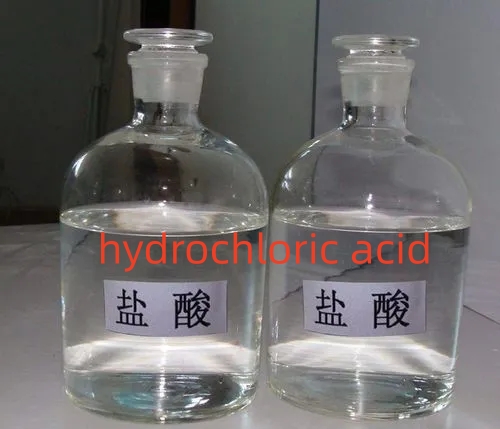Reaction Of Hydrochloric Acid With Water
Hydrochloric acid (HCl) is highly soluble in water and readily dissociates into its ions (H⁺ and Cl⁻) when mixed with water. The reaction can be represented by the following equation:
HCl (g) + H₂O (l)
\rightarrow
H₃O⁺ (aq) + Cl⁻ (aq)
HCl (g) + H₂O (l) \rightarrowH₃O⁺ (aq) + Cl⁻ (aq)
In this reaction, hydrogen chloride (HCl) molecules react with water molecules to form hydronium ions (H₃O⁺) and chloride ions (Cl⁻) in solution. The hydronium ion is essentially a water molecule that has accepted a proton (H⁺). The overall process is often referred to as ionization or dissociation of hydrochloric acid in water.
It's important to note that hydrochloric acid is commonly found and used in its aqueous (dissolved in water) form, and it is this solution that is typically encountered in laboratory and industrial settings. The reaction with water is a key characteristic of strong acids, like hydrochloric acid, which ionize completely in solution.
